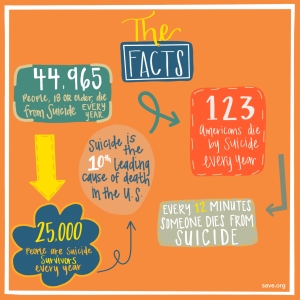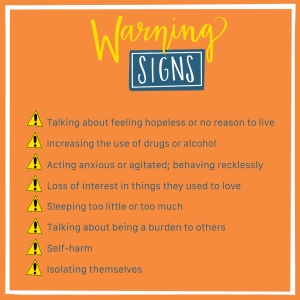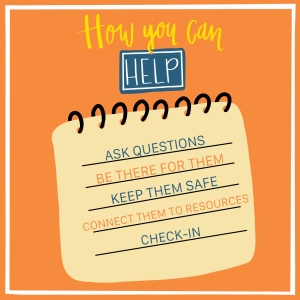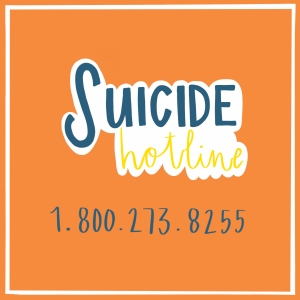5 Steps to Helping Someone with Suicidal Thoughts
Suicide isn’t a topic that anyone wants to talk about with a loved one, but it’s an important topic that we SHOULD be talking about. Here are 5 action steps that you can take to help someone who is having suicidal thoughts, and how they work.
Ask Questions
If you think someone is suicidal, the first step you need to take is ask them, “Are you thinking about suicide?” This opens up the door to letting them know that you are open to talking about the situation in a supportive and non-judgmental way. Asking in this direct manner also allows them to talk about their emotional pain and what next steps need to be taken for everyone involved. Do not ever promise to keep their suicidal thoughts a secret.
Make sure to take their answers seriously, especially if they say they are thinking about thoughts of suicide. It’s important to listen to their reasons of why they are in pain and why they want to stay alive. Help them focus on their reasons for living, not on your reasons for wanting them to stay alive.
It’s been proven that asking at-risk individuals if they are suicidal does not increase suicidal thoughts, it actually reduces the chances by acknowledging and talking with them about the situation.
Be There For Them
This can mean just having a simple conversation over the phone, going for lunch, grabbing a cup of coffee, but mainly showing support for this person. The most important part of this step is to always follow through in the ways that you say you’ll be able to support this person.
If you are unable to be physically present for someone, talk with them about ideas of others who might be able to help as well. Remember that these people also have to be willing and able to be there.
Being there for someone with thoughts of suicide can be lifesaving. Increasing the way they connect to others and limiting the time that they distance themselves from everyone is a good step to helping them fight against suicidal thoughts.
Keep Them Safe
It’s a good idea to have everyone on the same page. After you have completed the first two steps, and it is clear that they are having suicidal thoughts, it is important to find out a few things to ensure immediate safety. Have they already attempted suicide before talking with you? Do they know how they would kill themselves? Do they have a detailed plan of when, where and how? What sort of access do they have to their plan?
Knowing the answers to these questions can tell us the amount of danger this person is already in. For example, if they have a plan in place already then they are at a higher risk of going through with it. Or if they have access to a firearm and are very serious about suicide, then extra steps like calling the authorities or driving them to an emergency room might need to happen. The Suicide Hotline can always provide sources and advice on what to do in moments like that, or if you aren’t sure of what to do next.
Help Them Connect
Connecting someone with thoughts of suicide to resources that show support, is important because it provides a safety net for them when they find themselves in crisis. Some additional resources that can help keep them connected is the Suicide Hotline, community groups or a mental health professional.
Another way to help, is to work with them on developing a safety plan. This can be by helping them identify when they are experiencing a crisis, and what they can do to help them get through it. For example, making a list of people who they can contact when they need help.
Check-In
After you’ve gone through the steps with someone who has thoughts of suicide, connected them with resources and provided them support, make sure to continue to check-in with them. This is a great step to help in whatever else they need from you, or if there are things that you said you would do and haven’t had the chance to do those things, yet.
If you, or someone you love is having suicidal thoughts, call or text us at 509-488-5256 to speak with one of our Behavioral Health Counselors.
The Suicide Hotline is also available to anyone seeking help with suicidal thoughts, or needing resources to help someone with suicidal thoughts. 1-800-273-8255.
Source: https://www.bethe1to.com/bethe1to-steps-evidence/



